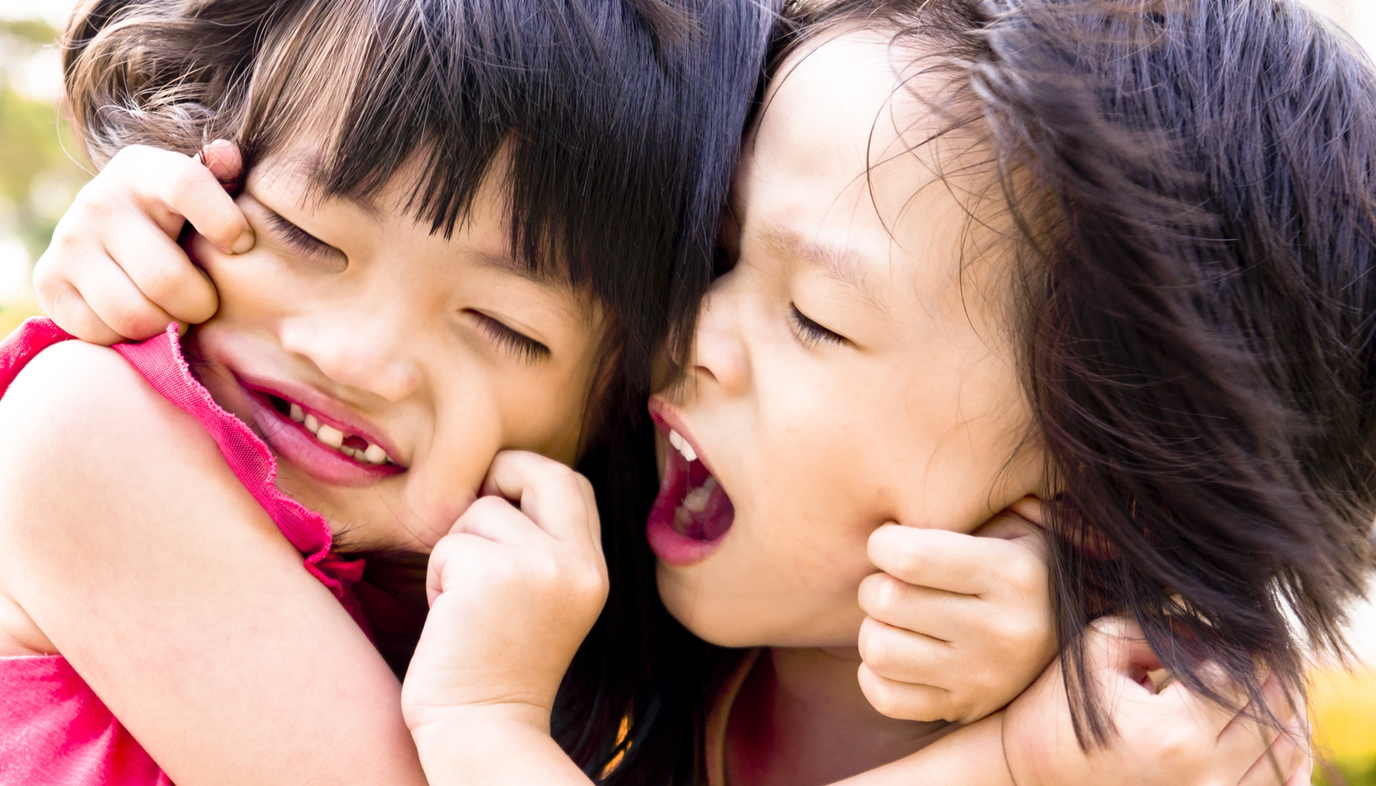
When you bring your first child home from the hospital, the whole family is abuzz with joy and anticipation. The first smile, first word, first step are all milestones that make your baby the center of attention. He revels in learning exactly what it will take to make his parents light up and shower him with affection.
Then along comes baby number two. Suddenly, this new baby gets all the attention. The older child feels his parents love the new baby more because of how they fawn over it. There’s a sense of competition because the older child feels he must now fight this tiny thing for their parents' love.
A little competition is a good thing. We can’t develop to our full potential without it. But what happens when competition turns to antagonism? Are there things parents can do at the outset to make sure their children develop strong bonds of love and friendship as opposed to anger and resentment?
Keeping Sibling Rivalry Under Control
Most parents agree that preparation far in advance of the new baby’s arrival is crucial. Sonia, a 26 year old client services coordinator from Toronto, Canada has a two year old girl and a new baby due this November. While she concedes that the little girl is probably too young to full understand what’s going on, it was important to her to prepare her toddler for the new arrival so that she wouldn’t feel like her place in mommy’s heart would be replaced. Sonia and her husband decided to ease their little girl into the huge transition by making some of the big changes early, before the baby arrived, so that their daughter wouldn’t ‘blame’ the new baby for the upheaval. “We moved her out of the nursery and into her 'big girl' room early so that she wouldn't feel that the baby was kicking her out. We made a very big deal about the painting and decorating. She took it really well. In fact, she no longer thinks of the nursery as her room and knows that's where the baby's going to be sleeping.

"We've decided that it might be best if he's the one holding the baby when it gets introduced to my daughter, that way she won't feel that it's stealing my attention from the first moment she meets it. And, since people visiting at the hospital will probably bring gifts for the baby, we're going to have the baby 'bring' a gift for my daughter, and have her bring one for the baby (which she will choose herself) as well. I know people who have done this and it's worked really well for them.”
Perhaps there’s a chance for an easier adjustment if the first child is considerably older when the new baby arrives. Such is the case with Denise, a 26 year old stay at home mother of two from Etobicoke, Canada. Her then five year old daughter was very excited when Denise and her husband informed her of the baby to come. “We talked a lot about it and read kids stories about introducing a new baby.”
It may be easier because the older child has had more interaction with other children. She has learned to share and has had more years to build her confidence and feel secure in her parent’s affection that once the new baby arrives, she doesn’t see him as a threat. It also helps that a baby’s needs and the needs of a preschooler are quite different so that the older child doesn’t feel like the parents are denying their needs to fulfill the baby’s. However as the new baby grows to a toddler and develops his own personality along with the ability to communicate, friction might develop between the two. Denise explains, “The younger can argue his point back now so they argue more because they both can speak! And of course there’s always the battle of the toys, like ‘how come she/he gets it.’”
As Siblings Grow Up
So what happens if sibling rivalry develops later in life? Parents who have lucked out the early years may not be out of the woods when it comes to friction between siblings. Sibling rivalries can reach notoriously high levels in adolescence because of the changing dynamics of not only how parents deal with their children (more rules, more responsibilities), but also how the siblings deal with each other (competition, resentment). Throw in a teen’s changing hormones and the household could become a powder keg, vulnerable to the slightest spark of animosity. This was definitely the case for Sandi, a 52 year old executive director from Los Angeles. Things started off well. “My daughter was 3 years old. She was very excited to learn that she was going to have a baby brother. She was in a daycare setting and understood younger children very well.” But once the two siblings hit their teen years, things began to change. “The children competed academically. They accused us of loving one more than the other.”

When Sandi’s marriage ended, this seemed to have been the spark to her children’s rivalry, despite their parents’ best efforts. “We treated them equally and fairly, ensuring that one didn't get more attention than the other, nor did they ever receive more than the other in terms of love, affection, gifts, and opportunities. My children are the victims of divorce and their sibling rivalry impacted their choices regarding where they chose to live once my ex and I divorced.”
Sibling rivalry may have been a part of the human condition since Cain and Abel in the biblical era. The general consensus seems to be the earlier the potential for rivalry is addressed, the better chance of heading it off before it becomes unmanageable and tears a family apart. As long as parents remain steadfast in showering both children with equal measures of love and affection, sibling rivalry, while not completely avoidable, can be managed effectively.
